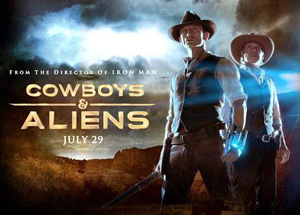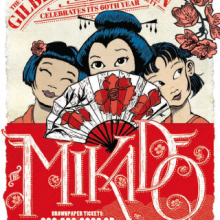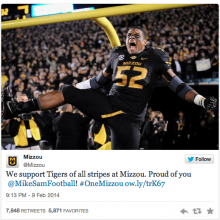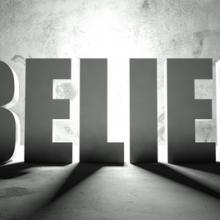stereotypes

Imaeg via The Telegraph/Twitter
Toys are the story again. Barbie recently made waves, with new body types as well as hijab-clad dolls, and now, it’s Lego’s turn. The iconic toy company just released a stay-at-home dad, complete with baby stroller and a mom in office clothing.
MY GREAT-GRANDMOTHER, Elizabeth “Lizzie” Johnson, was born in 1890 in Camden, S.C., with a different last name from all the other people in her household. Three generations later, we have no idea where the name Johnson came from.
Lizzie grew up working plantation land owned by her grandmother, Lea Ballard. Lea received the land in the wake of the Civil War: We don’t know how or why, though one theory speculates that Lea, who was listed as a 42-year-old mulatto widow on the 1880 U.S. Census, may have been the daughter of her slave owner. He may have given the land to her after the Civil War. We don’t know. We only know that Lea owned it, that she had 17 children who worked that land, according to family lore, and that the city of Camden eventually stole the land from her by the power of eminent domain. This we know from records I hold in my possession.
Lizzie married a railroad man named Charles Jenkins. Lizzie and Charles had three children; Charles later died in a railroad accident. Lizzie had a choice: endure the brutality of the Jim Crow South alone with three kids, or move with the stream of black bodies migrating north. Lizzie migrated to Washington, D.C., and, eventually, to Philadelphia and took her lightest-skinned child with her.
In my pastoral counseling class in seminary, the professor played a video of a counseling session of a black couple. He intended for us to learn some lessons on marriage counseling from it, but it turned out to be a laugh fest for the mostly white class. Repeatedly the husband and wife cut each other down with witty insults. My sense is that the couple reminded the students of George and Louise Jefferson from the TV show The Jeffersons. I sat next to an African American student that day and during the break I turned over to him and asked, “Do you find this funny?” He said, “I’m glad you asked,” and proceeded to tell me that he witnessed this kind of behavior firsthand in his own home since his parents are divorced. Needless to say he did not find the video amusing. I encouraged him to voice this to the class, which he courageously did when we returned from break. It seems while the professor intended to communicate one thing from showing the video, it communicated another because of the manner in which the students were racialized.
I share this story as an analogue to the recent controversy surrounding the production of the Seattle Gilbert and Sullivan Society’s The Mikado — a comic opera written in 1885 as a critique of British politics and institutions, set in distant, mysterious, and mostly made-up Japan. It began with Sharon Chan writing an editorial to the Seattle Times, calling the current production of it by an all-white cast as “yellowface” and “open[ing] old wounds and resurrect[ing] pejorative stereotypes.” Since then, Jeff Yang has also written an editorial for CNN.com entitled, “Yellowface staging of ‘The Mikado’ has to end.” I will not rehearse their arguments here; I write to address why this incident matters to North American evangelicals.
THE SHOOTINGS THAT took three lives this spring at a Jewish community center and retirement complex in Kansas are a reminder that deadly strains of what is usually called “anti-Semitism” remain with us. The fact that the shooter was a deranged white supremacist should not prevent us from coming to terms with the roots and survival of Jew-hatred in our culture.
Anti-Semitism is a made-up word that itself gives clues to the history of Jew-hatred in our civilization. The term was coined by German journalist Wilhelm Marr in 1879, one of a number of Jew-haters who were turning longstanding European Christian hatred of Jews into something modern and racial. The “Jewish problem,” therefore, became the “fact” that there was a racial group, the “Semites,” who were a mortal threat to another racial group, the “Aryans,” and therefore needed to be removed from Aryan societies. All right-thinking Germans/Europeans/Aryans, the argument went, needed to unite to combat the Semites through a scientific antisemitismus. The term is usually written “anti-Semitism” in English, but that usage profoundly reinforces the racist myth that there is a race of “Semites” needing to be opposed by “anti-Semites.” The term Jew-hatred is better because it refuses to participate in this mythology.
Modern racialized Jew-hatred flowed into the 20th century and crystallized most disastrously in Nazi Germany. There, over 12 terrible years, the 19th century anti-Jewish program was enacted, and then exceeded. Jews were to be “eliminated” from among the “Aryans,” a program that became annihilation after 1939, with 6 million Jews murdered.
What does it take to educate and parent African-American children, all while maintaining family values?
There’s something about Michael Sam that we are missing and I hope the church will see it.
Michael Sam is the college football star who “came out” in an interview with ESPN and the New York Times . He graduated in December and will be drafted in the upcoming NFL draft. Sam was the Southeastern Conference’s co-defensive player of the year and a first-team all-American. He came out to his teammates before the season started and at the end of the year they voted him their most valuable player.
But it’s not his superior football skills that the church should pay attention to. It’s his spirit and his sense of identity.
Throughout his interview on ESPN with Chris Connely, Sam smiles, clearly comfortable in his own skin. A few highlights of the conversation that are worth pointing out:
On Oct. 13, Asian Americans United published an open letter asking the church to reevaluate its behavior toward its Asian brothers and sisters. The letter demands that the evangelical community listen and respect a community that has generally been overlooked or disregarded. Central to this issue is identity.
When we begin to divide or alienate communities through our behavior based on race, we are additionally dividing the identity of Christ. However, if we return to the core of what being Christian entails, we are reminded that we are not our own and find a new calling to community.
With whom do you identify? In a nation, with over 75 percent of its population nominally claiming the label Christian, asking whom we identify with is an important question. It is a challenge but a daily necessity to reflect on our character and ask if we are truly representing Christ.
There are few things as exhausting, draining, and disheartening as family drama. I’m not talking low-level sibling rivalry over who gets shotgun all the time. I’m talking deep-rooted family issues that go generations back. That kind of family drama shows up in the most inopportune times in the most inappropriate places — at someone’s wedding or funeral, at the family reunion, or while grocery shopping.
But when family drama shows up in the church, it grieves me. It riles me up like nothing else does because it is in my identity as a Christian and Jesus-follower where I am all of who God created me to be and has called me to be — Asian and American, Korean, female, friend, daughter, wife, mother, sister, aunt, writer, manager, advocate, activist. The church is the place where I and everyone else SHOULD be able to get real and raw and honest to work out the kinks and twists, to name the places of pain and hurt, and to find both healing and full restoration and redemption.
So when the church uses bits and pieces of “my” culture — the way my parents speak English (or the way majority culture people interpret the way my parents speak English) or the way I look (or the way the majority culture would reproduce what they think I look like) – for laughs and giggles, it’s not simply a weak attempt at humor. It’s wrong. It’s hurtful. It’s not honoring. It can start out as “an honest mistake” with “good intentions,” but ignored, it can lead to sin.
Fortunately, there is room for mistakes, apologies, dialogue, learning, and forgiveness.
I was in my office on a quiet afternoon when I saw the car pull into the parking lot.
Those of us who work in churches are familiar with people stopping by seeking a bit of financial help. But people stop by churches for lots of reasons. It’s best to wait to see what they want before making assumptions.
As I watched the African-American gentlemen get out of his car, I sighed. My peaceful afternoon was going to be interrupted by yet another request for help. We could do that, but it would take some time. He came into the church and I greeted him.
“Hi, how are you?”
“Fine,” he said. “But I think I’m lost. I’ve got this appointment at a business near here, but I think I missed a turn. Can you help me figure out where it is?”
So why did I assume he was looking for a handout? The only variable was the color of his skin. And in that moment, I realized how quickly I make judgments about people based on stereotypes that lurk within me. And I was grateful that I had kept that stereotype to myself when I greeted the man.
1) You Love To Argue, Fight, And Attack
There’s nothing quite like flooding people’s Facebook feeds with posts about the sins of gay marriage, abortion, and the Democratic Party or the volleyed claims of bigotry, hypocrisy, and self-interest.
American Christians seemingly love to argue with people and engage themselves in various culture wars. Whether it’s about the existence of global warming, prayer in schools, evolution, gun control, or homosexuality, you love to let people know that you’re RIGHT and they’re WRONG. Oh yeah, and if you don’t agree with me —You’re going to hell! Literally.
Your main forms of communication include boycotting, accusing, yelling, screaming, pointing, spewing, slandering, shaming, shaking your fists, and waving protest signs. In fact, you’ll probably write a venomous response to this piece in the comments section below.
There are lots of biases and assumptions about Christians out there, many of which are founded in real-life experience. And yes, we Christians have done our share of damage when it comes to tarnishing our so-called “brand.” But there also seems to be this tendency to understand Christianity and its adherents as one generally monolithic group that can be described in simple (often negative) terms that they would never be acceptable to apply to any other group.
Part of this is because of the historic dominance of the Christian culture in the modern Western world. It’s the same reason that stereotypes of men on network sitcoms are pervasively unflattering, while the same stereotypes would cause a firestorm of negative publicity if applied to the female counterparts. Some of this is entirely warranted and necessary in tearing down false or damaging constructs of power. But sometimes, if we’re being honest, they’re just wrong. And stupid.
Meet Amanda, Casey, Ashlee, Chanel, Joey, and Erica. They spend their time and their parents’ money shopping for designer labels, searching for rich husbands, and lounging by the pool with a glass of wine in hand.
They’re self-admitted “Jewish American Princesses,” and Bravo’s built a whole reality series, "Princesses: Long Island" around their exploits. The show follows six unmarried 20-something Jewish women living with their parents on New York’s Long Island. The first two episodes were titled “You Had Me at Shalom” and “Shabbocalypse Now.”
“Everybody has a stereotype of a Long Island Jewish girl,” cast member Ashlee White said on the show’s June 2 premiere. “People get so offended! I’m like, ‘Bring it.’ I’m Jewish, I’m American, and I’m a princess.”
And that’s where some Jews — and even some Long Islanders — have a problem.
I’VE WINCED often at the portrayal of religion in recent documentaries—partly out of embarrassed identification with some of the apparently crazy things I’ve witnessed in real life, and partly because some documentarians seem to think that there’s nothing to religion other than those crazy things. God Loves Uganda, a new documentary about the role played by U.S. missionaries in nurturing that country’s homophobic culture and legislation, manages to avoid the mistake of confusing bad religion with all religion.
The concern for the Ugandan people manifested by fundamentalist charismatic Christians is suggested to be far less than the sum of its parts as they become participants in the nurturing of a social structure that aims to eradicate gay people. But the film avoids easy stereotyping of Christian mission work, particularly in the person of Bishop Christopher Senyonjo, a smiling radical in the mold of Desmond Tutu. His is a face of Ugandan Christianity that is open, generous, alive, courageous, and kind—a prophetic African voice for human rights.
Wendell Berry recently suggested that the expression of anti-LGBTQ sentiment may evoke a kind of subconscious reaction in the proponent akin to autoerotic pleasure. Delighting in the pain of others is a kind of sadism rooted in the insecurities harbored by the person who has decided it’s their job to be the moral police, despite how kind they may think they are being. The fear stirred by psuedo-Dominionist movements may have given the U.S. missionaries in God Loves Uganda a sincere desire to change the world. But their lack of self-reflection leads them to export some of the worst of American cultural imperialism: prejudice, the conflation of sentimentality and cultural ignorance with love, the denial of the gift that the other has for us.
Imagine this scenario occurring in your workplace. It’s your company’s annual corporate retreat, and in a misguided attempt to inject humor into the event, your leaders present a skit in which they all pretend to be disabled in some way.
They hobble around with awkward positions, as if paralyzed or unable to use particular limbs; they exaggerate their speech and behavior to grossly characterize those who have communication difficulties, and all these representations are done in a mocking and demeaning way, to garner a few laughs.
No modern-day corporation would do this. And yet, in the context of Christian organizations and churches, similar situations still occur.
We recently witnessed a sermon video in which the pastor of a large, multi-site church in Minnesota brought an Asian man on stage representing a “samurai” and had him sit before the congregation, stone-faced and silent, while the pastor flailed his arms in a cartoonish imitation of karate moves while yelling random Asian-sounding gibberish, then banged a loud gong in an attempt to rattle the “samurai’s focus.”
Everyone out there, let’s try giving our girls something positive this Christmas.
One gift at a time, we can foster their intellect.
One gift at a time, we can affirm their worth as contributors and not just bystanders.
We can give them value beyond their curls and big brown eyes, which are beautiful, yes, but what about giving them a book that doesn’t have a princess as the main character?
What about that science kit that you were looking at for your nephew? Would your niece like it too?
 Americans have a hard time knowing how to respond to the sins of our colonial past. Except for a few extremists, most people know on a gut level that the extermination of the Native Americans was a bad thing. Not that most would ever verbalize it, or offer reparations, or ask for forgiveness, or admit to current neocolonial actions, or give up stereotyped assumptions -- they just know it was wrong and don't know how to respond. The Western American way doesn't allow the past to be mourned or apologies to be made. Instead we make alien invasion movies.
Americans have a hard time knowing how to respond to the sins of our colonial past. Except for a few extremists, most people know on a gut level that the extermination of the Native Americans was a bad thing. Not that most would ever verbalize it, or offer reparations, or ask for forgiveness, or admit to current neocolonial actions, or give up stereotyped assumptions -- they just know it was wrong and don't know how to respond. The Western American way doesn't allow the past to be mourned or apologies to be made. Instead we make alien invasion movies.











